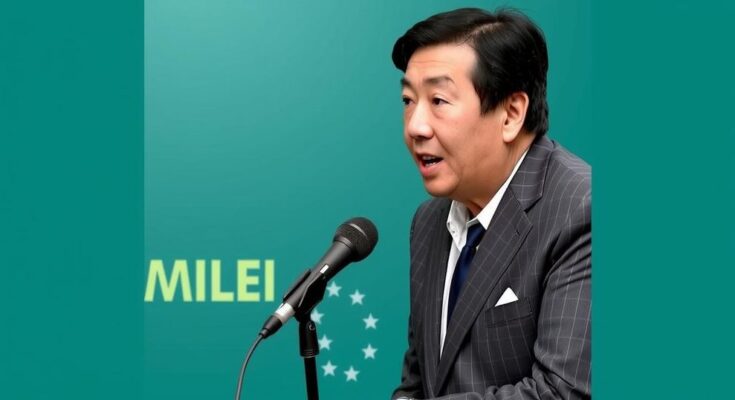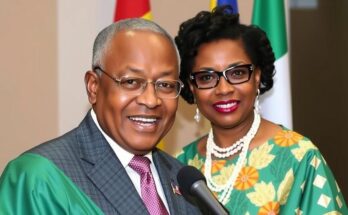Argentina’s President Javier Milei has terminated Foreign Minister Diana Mondino’s position after the country voted at the United Nations to lift the US embargo on Cuba. This vote marked a departure from Argentina’s previous alignment with the US and Israel. Gerardo Werthein has been appointed to succeed Mondino, with the government reaffirming its opposition to the Cuban government and emphasizing its commitment to democratic values in foreign relations.
President Javier Milei of Argentina has dismissed Foreign Minister Diana Mondino following the country’s vote at the United Nations in favor of lifting the US economic embargo on Cuba. This decision marks Argentina’s departure from its previous alignment with the positions of the US and Israel, as it was one of 187 nations supporting the non-binding resolution, with only the US and Israel opposing it. Gerardo Werthein, the ambassador to Washington, has been appointed as Mondino’s successor. Following this appointment, President Milei’s office emphasized Argentina’s strong opposition to the Cuban government, stating, “Our country is categorically opposed to the Cuban dictatorship and will remain firm in promoting a foreign policy that condemns all regimes that perpetrate human rights violations.” Under the previous administration, Argentina maintained a cordial relationship with Cuba, advocating for the end of the embargo that had been imposed in the 1960s. The Cuban government had reciprocally supported Argentina’s sovereignty claims over the Falkland Islands, a matter of historical contention between Argentina and Britain. In a statement reflecting the shift in Argentina’s foreign policy, the government declared a commitment to embodying the values of freedom, sovereignty, and individual rights characteristic of Western democracies. Observers noted that tensions had been on the rise between President Milei and the Foreign Ministry, yet Mondino was regarded as a crucial figure in maintaining Argentina’s diplomatic image, often mitigating tensions arising from the president’s statements. The US trade embargo against Cuba has been in effect since 1962, intended to compel Cuba to embrace capitalism and democratic governance but has largely failed to meet that goal, continuing to provoke regional contention.
The US economic embargo on Cuba was instituted in 1962 amid concerns over Fidel Castro’s socialist policies following the Cuban Revolution. The embargo aimed to pressure Cuba to abandon its communist regime and adopt a capitalist model. Throughout the decades, the embargo has faced criticism for its ineffectiveness and has remained a point of contention among nations in the region, including Argentina. With a history of close ties between Argentina and Cuba, particularly under leftist administrations, the recent shift under President Milei signifies a notable realignment in foreign policy. This change is representative of Milei’s broader strategy to align Argentina with Western democratic values and to oppose regimes viewed as authoritarian or in violation of human rights.
In conclusion, the dismissal of Foreign Minister Diana Mondino by President Javier Milei symbolizes a significant shift in Argentina’s diplomatic stance, particularly concerning Cuba and its relationship with the United States. By breaking from the previous administration’s policies, Milei aims to align Argentina with Western democratic principles and distances the government from perceived authoritarian regimes. This decision illustrates the evolving dynamics of foreign policy as Argentina navigates its international relations in the context of historical affiliations and present-day political ideology.
Original Source: www.bbc.co.uk




